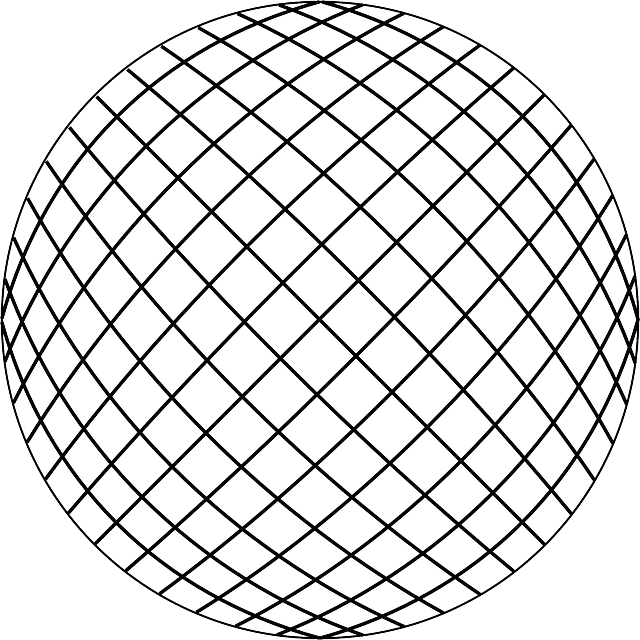Zinc plays a critical role in wound healing by promoting fibroblast activity for collagen production, managing inflammation through antioxidant effects, and influencing cell signaling for tissue regeneration. Its integration within kratom's profile of vitamins and minerals enhances the botanical supplement's potential to facilitate faster wound closure and recovery, while also bolstering immune function. Clinical research supports zinc's ability to expedite healing processes, reduce infection risk, and improve overall wound outcomes. Given its importance in immune function, protein synthesis, and cellular repair, zinc is a key factor in the recovery of injured tissues. The presence of zinc in kratom may synergistically accelerate tissue repair when used as a holistic nutritional supplement. However, it's essential to consult healthcare professionals before incorporating kratom into any treatment plan due to its potent effects and potential interactions with zinc metabolism. Proper dosing of zinc is necessary to maximize its therapeutic benefits while minimizing the risk of toxicity. This underscores the importance of considering both kratom's vitamins and minerals, including zinc, as part of a comprehensive wound care and nutrition strategy.
Zinc’s pivotal role in human health extends beyond its recognition as a key vitamin and mineral component of Kratom. This article delves into the transformative effects of zinc on wound healing, offering insights that go beyond the nutritional benefits commonly associated with Kratom. We explore how zinc not only accelerates the repair process but also enhances the overall efficacy of holistic nutrition in this context. Join us as we uncover the intricate mechanisms behind zinc’s contribution to wound healing, discuss optimal dosages, and elucidate its interactive effects with Kratom alkaloids. Understanding the synergy between Kratom’s vitamins and minerals, particularly zinc, can revolutionize approaches to wound care and recovery.
- Unveiling the Healing Power of Zinc in Wound Repair: A Role Beyond Kratom's Vitamin and Mineral Profile
- The Synergy of Kratom and Zinc: Enhancing Wound Healing with Holistic Nutrition
- Zinc's Indispensable Role in Wound Healing: Mechanisms, Dosage, and Interactions with Kratom Alkaloids
Unveiling the Healing Power of Zinc in Wound Repair: A Role Beyond Kratom's Vitamin and Mineral Profile

Zinc, a critical micronutrient often overshadowed by its role within kratom’s vitamins and minerals profile, emerges as a pivotal factor in wound healing. This essential trace element plays an integral role in the proliferation and migration of fibroblasts—cells responsible for producing collagen and other extracellular matrix components necessary for wound repair. The antioxidant properties of zinc help manage inflammation, a common challenge in the healing process. Zinc’s involvement extends beyond its status within kratom; it modulates cell signaling pathways that are crucial for tissue regeneration and remodeling. Clinical studies have demonstrated that zinc supplementation can significantly accelerate wound closure, reducing recovery time and the risk of infection. Its role in maintaining cellular integrity and immune function is also significant, as a robust immune response is essential for effective wound healing. In this context, zinc’s contributions go beyond its inclusion in kratom products; it stands as an independent key player in the complex process of wound repair, making it a subject of intense scientific interest for its potential applications in various medical treatments.
The Synergy of Kratom and Zinc: Enhancing Wound Healing with Holistic Nutrition

Zinc, a vital mineral, plays a pivotal role in the immune system, protein synthesis, and wound healing. Its efficacy in promoting cellular repair is well-documented, making it an essential component in the recovery process of injured tissues. Kratom, a botanical supplement derived from the leaves of Mitragyna speciosa, has garnered attention for its diverse pharmacological properties, including its rich profile of vitamins and minerals. Among these, kratom contains significant levels of zinc, which may contribute to its potential to enhance wound healing when used as a holistic approach to nutrition. The synergy between kratom’s alkaloids and the wound-healing properties of zinc can create a complementary effect that accelerates tissue repair and reduces recovery time. This combination not only supports the immune response but also improves collagen production, a key element in the formation of new, healthy skin cells at the site of injury. Incorporating kratom as part of a balanced diet enriched with zinc can provide the necessary nutrients to support the body’s natural healing processes, making it a promising adjunct therapy for individuals seeking alternative methods for wound care. However, it is important to consult healthcare professionals before incorporating kratom into any treatment plan due to its complex and potent nature.
Zinc's Indispensable Role in Wound Healing: Mechanisms, Dosage, and Interactions with Kratom Alkaloids

Zinc is an indispensable micronutrient that plays a critical role in the process of wound healing. Its involvement in this biological process is multifaceted, encompassing several key mechanisms. Zinc acts as a growth factor for fibroblasts, the cells responsible for synthesizing collagen and other components of the extracellular matrix during tissue repair. It also modulates inflammatory responses by regulating cytokine production, ensuring an appropriate immune response to facilitate healing without causing excessive damage. Furthermore, zinc’s role in DNA synthesis and protein production is essential for the regeneration of new cells at the site of injury.
In the context of wound care, zinc’s dosage must be carefully considered to optimize its therapeutic benefits while minimizing potential toxicity. The recommended dietary allowance (RDA) for zinc is determined by factors such as age, sex, and physiological status. In individuals with wounds, topical applications of zinc-enriched dressings or supplementation may be warranted to meet the increased demand for this mineral during the healing process. It’s also important to note that certain substances like kratom alkaloids can interact with zinc’s metabolism and function. Kratom, known for its rich profile of vitamins and minerals, including zinc, may affect the absorption and utilization of zinc within the body. Therefore, careful monitoring and dosage adjustments are necessary when kratom is used concurrently with zinc supplements to ensure synergistic benefits without adverse effects. This interaction underscores the importance of a comprehensive approach to wound healing that considers all aspects of nutritional support and therapeutic intervention.
Zinc’s multifaceted role in wound healing, beyond its status as a key vitamin and mineral within the context of Kratom’s holistic nutritional profile, is a testament to its indispensability in the repair process. The article has delved into the mechanisms behind zinc’s efficacy, highlighting its impact on cell proliferation, collagen synthesis, and immune function. By understanding how zinc complements Kratom alkaloids, healthcare professionals can better guide patients towards optimal wound healing. Incorporating zinc as a supplementary strategy, in conjunction with a balanced diet rich in Kratom’s vitamins and minerals, presents a promising approach to expedite the healing process while minimizing complications. This research underscores the importance of a comprehensive nutritional plan that includes zinc for effective wound management.






